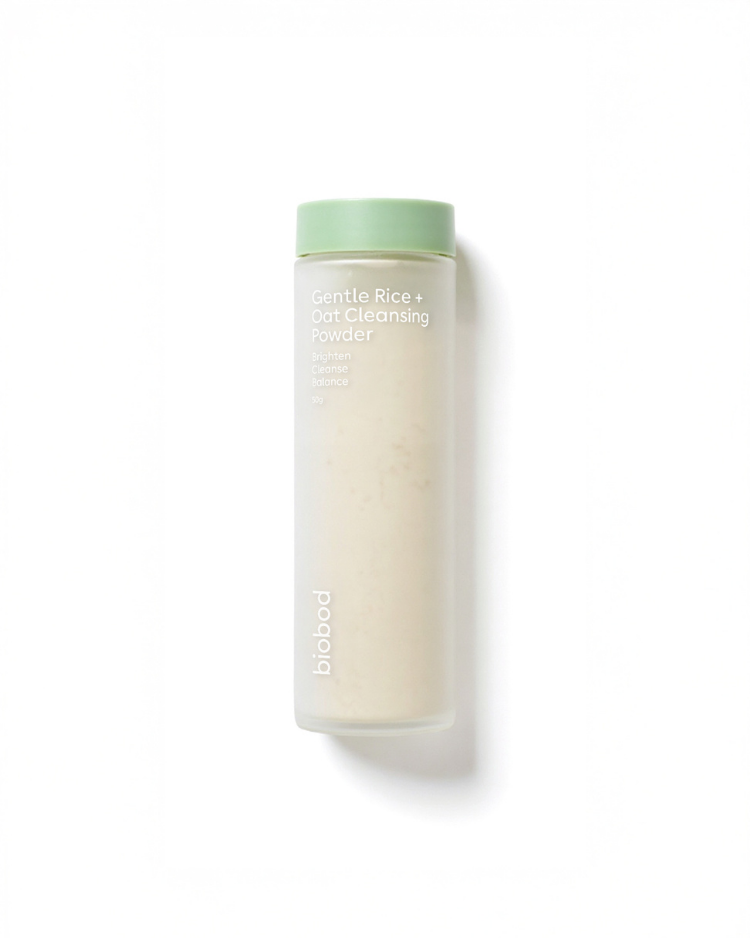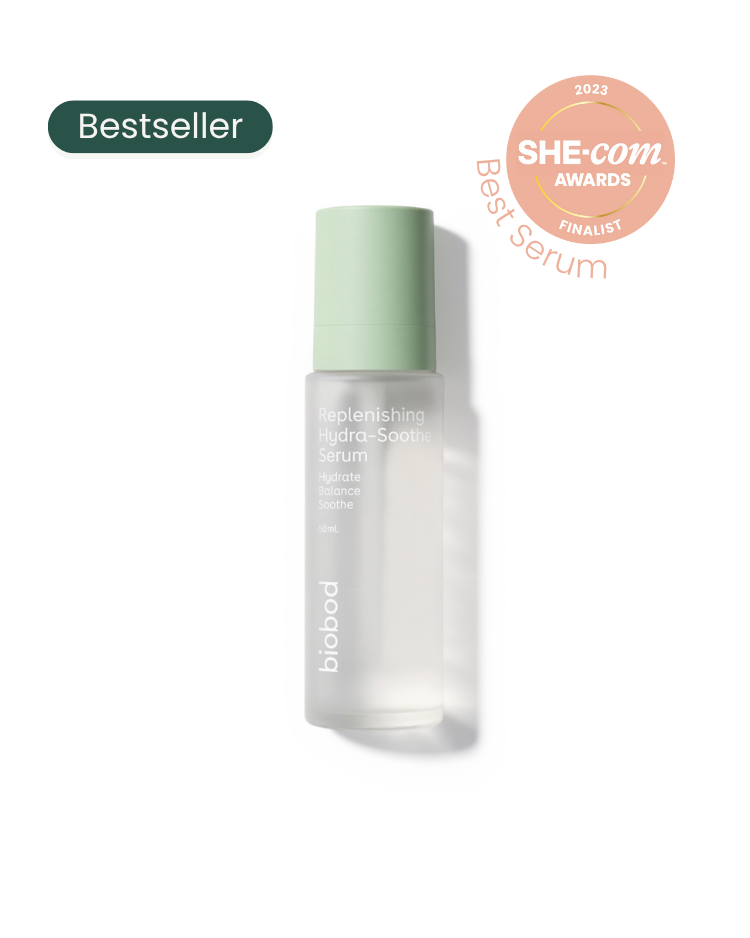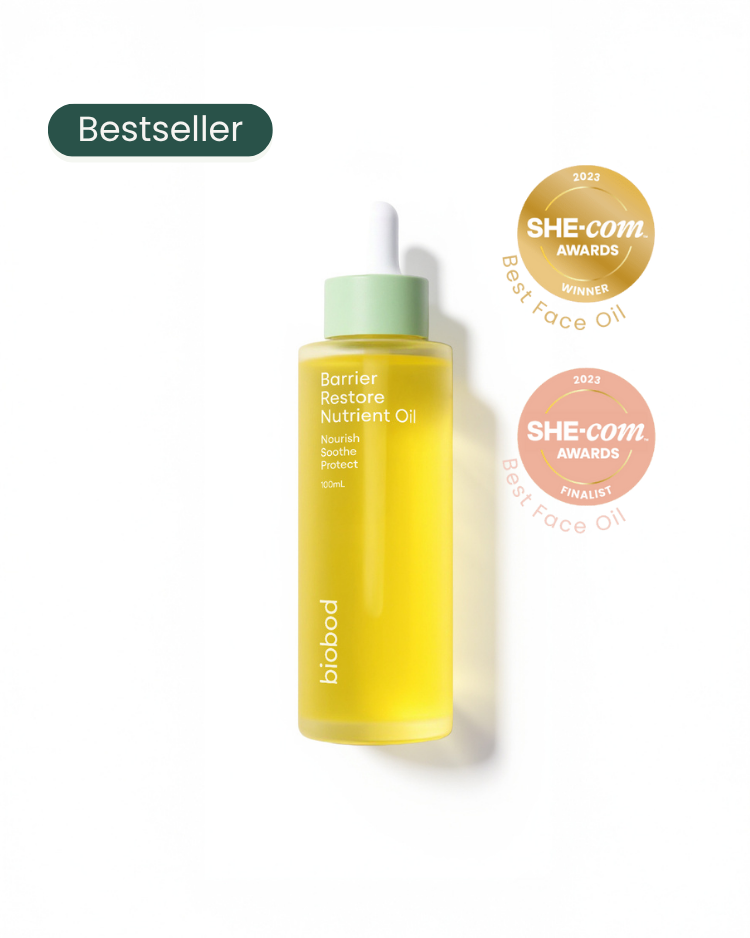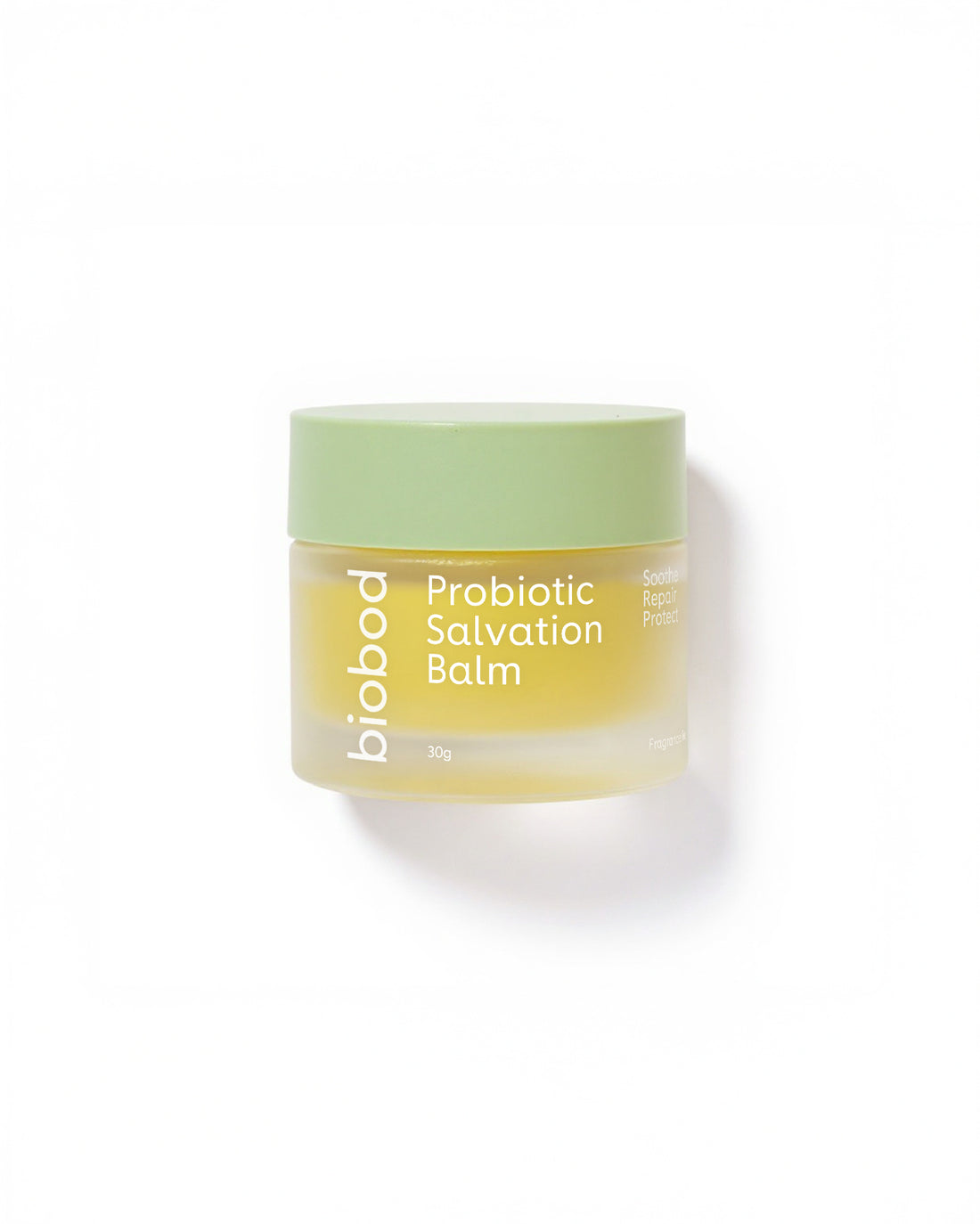We get asked this all the time: "Which ingredients should I avoid if I have sensitive skin?" And honestly, even if your skin isn't reactive, avoiding common irritants is one of the best things you can do to maintain a calm, resilient complexion.
List of Skincare Ingredients to Avoid If You’re Sensitive, Reactive Skin
At Biobod, we were built for skin that gets flustered easily. Whether you're dealing with sensitivity, breakouts, redness, or just want to avoid ingredients that stir up inflammation—we've got you. Here's the red flag list that dermatologists, sensitive-skin specialists, and clinical research consistently recommend steering clear of.
1. Fragrance (Synthetic or Natural)
It’s the number one irritant dermatologists flag and it shows up in everything from moisturisers to “soothing” face masks. Whether it’s synthetic parfum or natural essential oils, fragrance is a top trigger for contact dermatitis, redness, and barrier disruption.
2. Essential Oils (Yes, Even Lavender or Citrus)
They smell great, but they can seriously stress out sensitive skin. Citrus oils (like bergamot and lemon), peppermint, eucalyptus, and lavender can all sensitize or irritate the skin especially when used daily or exposed to sunlight.
3. Denatured Alcohol (Alcohol Denat., SD Alcohol 40)
Used to create that light, quick-dry feeling in toners and gels, denatured alcohol strips the skin of its natural lipids and damages the skin barrier over time leading to dryness, redness, and increased reactivity.
4. Sodium Lauryl Sulfate (SLS)
This foaming agent makes products lather like a dream, but it’s also known for being harsh and barrier-stripping. It’s especially problematic for sensitive or eczema-prone skin.
5. Menthol and Mint Derivatives
They give a cooling sensation, but that “tingle” is often a sign of irritation. Menthol, peppermint, and eucalyptus are frequent culprits in reactive skin flare-ups.
6. Witch Hazel
Often marketed as a natural toner, witch hazel can be deceptively harsh due to its natural alcohol content and astringent properties. It can over-dry and inflame already-sensitive skin.
7. Harsh Physical Exfoliants
Walnut shells, apricot kernels, and sugar scrubs may feel satisfying but these jagged particles can create micro-tears in the skin, especially if your barrier is already compromised.
8. Strong Actives in the Wrong Context
Ingredients like retinol, AHA/BHA acids, and vitamin C have their place but used without proper barrier support, they can overwhelm sensitive skin. Less is more.
9. Heavy Artificial Dyes or Colourants
If it’s hot pink or neon green, chances are it contains synthetic dyes, often derived from coal tar and they’re not your skin’s friend.
10. Coconut Oil (on the face)
While nourishing for the body, coconut oil can be comedogenic on the face, meaning it may clog pores and trigger breakouts—especially for acne-prone skin.
What to Look for Instead
At Biobod, we believe skincare should work with your skin, not against it. That’s why you’ll never find any of the ingredients listed above in our formulations. We prioritise biocompatibility, choosing ingredients that naturally support the skin barrier, balance the microbiome, and calm inflammation.
Because the goal isn’t just fewer flare-ups it’s stronger, more resilient skin over time.
Want to learn more about how our formulations work?
Start Your Happy Skin Journey Without The Sting
If your skin flares up at the slightest change, trying new products can feel like a gamble. That’s exactly why we created the Discovery Kit. A gentle, no-pressure way to explore a routine that's gentle on sensitive skin.

This trial-sized set lets you road-test our core products without the worry of committing to full sizes. Each formula is designed for compromised, reactive and easily irritated skin, helping you ease into a routine that nurtures your barrier and supports long-term skin health.
A little bonus worth knowing:
Our formulations are intentionally made with minimal ingredient crossover. That means each product delivers its own unique benefits without stacking the same actives over and over. Giving your skin variety, balance and far less chance of irritation.
The Discovery Kit is your safe starting point, your gentle reset and your easiest way to experience what truly calm, happy skin can feel like.
Read about the Biome Advantage® and why every Biobod product is designed with sensitive skin in mind.
Explore our skincare range for healthy, happy skin:








